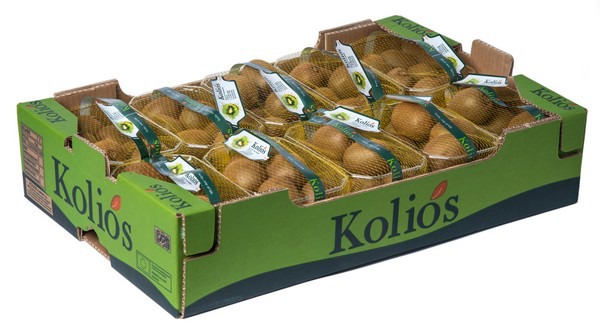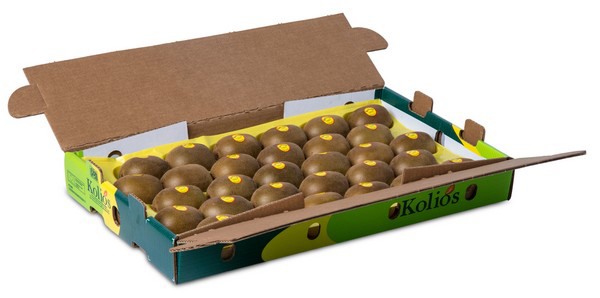According to George and Christos Kolios, of Greek kiwi exporter Kolios S.A., the kiwi season in Greece has been a very challenging one so far, with higher prices and an oversupply from Italy and Greece: “We are the franchisor of Soreli kiwi in Greece and one of the leading producers of Hayward and Soleri kiwi in Greece. This has been a very challenging season for both green and Soreli gold kiwi from the very beginning. The key characteristics were increased cost of production, due to more expensive transport, packing materials, labor and of course electricity costs, the latter of which have increased since last year, because of the war in Ukraine. Low prices for the kiwis as well as lower market demand since the beginning of the season, and oversupply from the main producing countries Italy and Greece.”
There will be less quantities of kiwis overall, as the sizes are smaller in general, Kolios explains. “The kiwi harvest will be lower in terms of kilograms harvested, as the caliber of kiwis are smaller. This means in terms of weight, there’ll be 15% less kiwis this season. On average, the reduction in size has been by two calibers. About 15-20% of the harvest consisted of unusually very small fruits cal. 42-46. For Kolios, we concentrate our sales to overseas markets. Our main markets are South and North America, South-East Asian markets like China, Indonesia, Thailand, Malaysia and South Korea, as well as a few markets in North Africa.”

One of the major challenges for kiwi traders are newer players in the market, who undersell their product, with lesser quality, Kolios states: “In my opinion, the biggest issue is the presence of many traders who don’t know the kiwi market very well. They usually offer low prices, but in the end their product is not as good. We have dealt with this kind of competition with our corporate culture: To have a constant high-quality product that has brand recognition, a loyal client base with a determination to support them and the highest respect for our farmers, employees, and clients.”
To deal with the oversupply in Europe, Kolios has been focus on markets overseas, which has been more challenging than transporting to European markets. “The main challenge for most kiwi exporters is the oversupply and low demand in Europe. We have overcome this problem by exporting mainly overseas. Certainly, the non-EU markets are much more challenging and demanding due stricter quality requirements by the local authorities, as well as due to the longer transit time needed to arrive there, which is between 21 and 40 days, which is riskier for the fruit. Our very high-quality standards and our vertical production scheme has enabled us to successfully supply non-EU countries for a very long time.”

Looking ahead, Kolios hopes that the kiwi market will improve after Fruit Logistica has taken place. “Given the current economic situation, with very high inflation and weak demand, it is very difficult to predict something with certainty. We believe that the market will continue to underperform until end of January. We will see in the beginning of February, after Fruit Logistica, if there will be a turnaround.”
For more information:
Christos Kolios and George Kolios
Kolios Company S.A
Tel: +30-26810-52365
Email: [email protected]
www.koliosfruit.gr/en/
